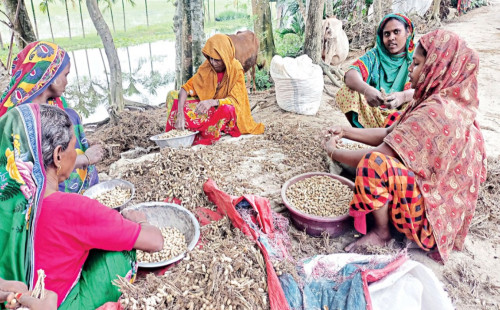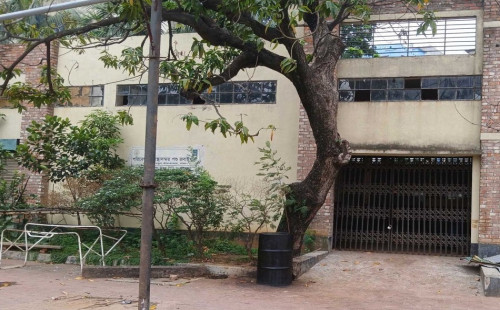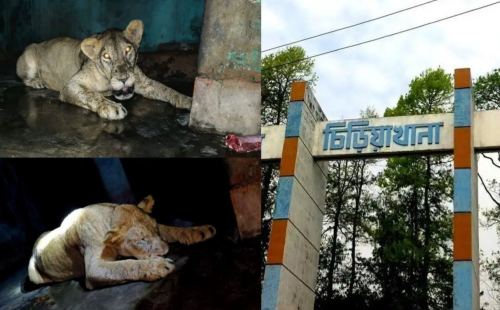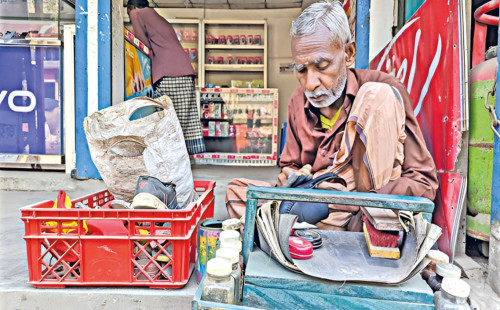Consumer fraud on the rise
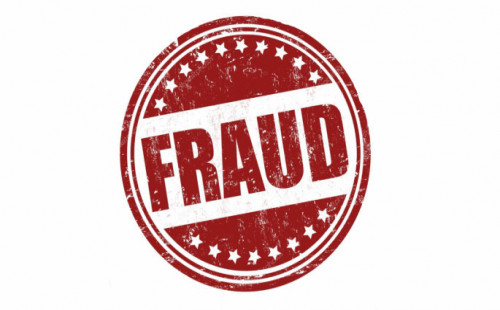
The Directorate of National
Consumer Rights Protection has been working round the clock to regulate
different markets across Bangladesh, but its efforts to enforce regulations on
traders was not very successful in the last decade.
Data collected by the
directorate during drives at different markets and complaints filed by the
customers indicate that traders are increasingly engaging in consumer fraud,
which in turn has raised questions about the state of consumer rights
protection in the country.
Sources from the directorate say
it has been carrying out drives and monitoring markets at divisional, district
and upazila levels throughout the country on a regular basis, and the number of
traders getting caught after defrauding consumers have been rising rapidly.
The traders are committing
multiple types of consumer fraud, such as not displaying the price-list of
goods and services, overcharging consumers, trading adulterated goods, and
selling products without proper packaging.
According to data from the
directorate, nearly 40,000 people took legal action after becoming victims of
consumer fraud in the last decade, and 95% such incidents occurred in the last
five years.
Despite getting defrauded by
traders frequently, a majority of consumers are not taking legal action.
Authorities concerned told The Business Standard that most victims do not seek
legal support from the Directorate of National Consumer Rights Protection.
Commenting on the issue,
Consumers Association of Bangladesh's (CAB) Vice-President SM Nazer Hossain
said, "The number of culprits getting caught is going up in tandem with
the number of drives conducted in different markets.
"Such a trend indicates
that the punishments handed down to these traders were unable to raise
awareness among them, or initiate a change in their behaviour."
Mentioning the onion price hikes
last year, Hossain said, "We all know what happened after the Indian
government halted onion exports to Bangladesh on two occasions. The traders are
now defrauding consumers on the rice prices. There is no solution to this
predicament."
The Directorate of National
Consumer Rights Protection began its journey in 2009 with the aim to safeguard
the people from deceptive business practices. Since its inception, the
directorate has been carrying out market monitoring and regulation on a regular
basis.
But the authorities concerned
think the number of victims seeking legal action is too low, as more and more
traders are getting caught during drives at the markets for committing consumer
fraud.
During this period, 97,309
businesses have been punished for their involvement in consumer fraud.
According to the directorate,
the number of traders engaging in deceptive business practices have skyrocketed
in the last four years. In the 2016-17 fiscal year, 9,306 businesses were
punished for fraud, but 22,244 businesses received punishment in the FY2019-20.
The data indicates that the
number of offending traders have more than doubled since the last four years.
Under such circumstances,
Bangladesh is observing the World Consumer Rights Day with the slogan "Our
Oath in Mujib Year is to Curb Plastic Pollution" on Monday. The day was
first observed by an organisation named Consumers International in 1983.
Presently, 120 countries including Bangladesh mark the occasion every year on
15 March.
'A few of bad apples'
When approached for comments on
the matter, Bangladesh Shop Owners Association President Md Helal Uddin said,
"There are a few bad apples in every profession. We have laws and
punishments for such people. Those who engaged in consumer fraud are getting
punished."
He also claimed that traders
sometimes refrain from hiking prices of goods considering the humanitarian
angle.
Commenting about the two-time
hike in onion prices, Helal Uddin said, "When a crisis unfolds centring a
particular product, the Directorate of National Consumer Rights Protection
fails to regulate the market properly. This in turn gives some traders the
opportunity to commit crimes."
Meanwhile, CAB Vice President SM
Nazer Hossain said, "After conducting many campaigns at different locations,
we had hoped for a larger response from the consumers about this issue. People
can resolve such a matter only when they are aware of it.
"Consumer fraud will keep
rising if people do not become more aware."
The directorate pays the victim
25% of the fine after their complaints against a trader are verified.
But, very few consumer fraud
victims actually seek the directorate's support despite such incentive.
Speaking on the matter, its Deputy Director (Dhaka Division) Monjur Mohammad
Shahriar said, "We have been raising awareness among the traders and
consumers simultaneously about their responsibilities and rights.
"If the victimised
consumers still do not approach us for support, then we must boost our
activities."
When asked about Bangladesh's position
in the world in terms of consumer rights protection, Shahriar said, "We
take action against any group of traders attempting to manipulate the market.
We have the capacity to regulate the markets quickly.
"We have also significantly
increased the number of drives being conducted at different markets."
The Business Standard has spoken
with a number of consumers on the issue.
When asked whether he visits the
Directorate of National Consumer Rights Protection after facing consumer fraud,
Shariful Islam from the capital's Jhigatola area said, "In this country,
the prices of onion, salt, potato and edible oil go through the roof without
any valid reason.
"So, I do not feel like
approaching them [the directorate] for relatively tiny matters."
Another consumer from Rampura, Mohammad Al Amin said, "Though the directorate pays consumers money when they find validity of any complaints, I do not go to them after suffering small scale consumer fraud."
Source: TBS.









